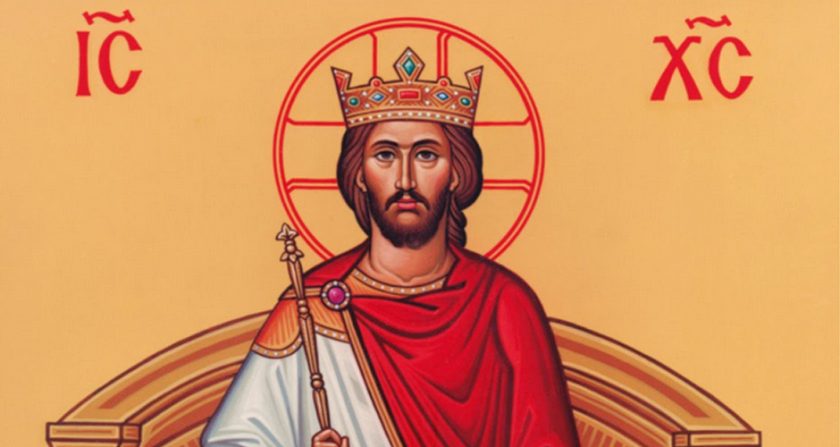THE INSTITUTION OF THE FEAST
It is not new to Christians that Christ is King: the Holy Scriptures, the Fathers of the Church and the pious people give testimony. The feast of Christ the King was established less than a hundred years ago in 1925 by Pope Pius XI on the encyclical “Quas Primus” (Latin for “In the first”) where he wrote that Christ needs to be king in every aspect of life: over persons, families, institutions, the state and even the whole universe.
WHAT DOES THE “QUAS PRIMAS” ENCYCLICAL SAY?
Pope Pius XI wished to make well known and widespread the royal dignity of our Lord Jesus Christ. In the first part of the letter, he developed the biblical and theological foundations of the kingship of Christ and explained the nature of His Kingdom. In the second part, the Pope showed the purpose of the feast – the communication of the regality of Christ – and the effect that expect it, namely the contribution of a “very effective remedy to the plague that pervades human society”, the laicism.
It should be noted that laicism is different from secularism, this being “one of the principles of Catholic doctrine”, as Pius XII later clarified: to give to Caesar what belongs to him is a command of Jesus himself (Speech, March 23, 1958).
In another hand, laicism or anti-clericalism is described by Pope Pius XI so: “the religion of Christ came to be likened to false religions and to be placed ignominiously on the same level with them (…). Some men went even further and wished to set up in the place of God’s religion a natural religion consisting in some instinctive affection of the heart. There were even some nations who thought they could dispense with God, and that their religion should consist in impiety and the neglect of God. (Quas Primas).
THE KINGDOM OF CHRIST
Therefore, in what does this Kingdom consist? The kingdom of Christ is not of this world (Jn 18:36). The kingship of Christ comes different from governments that claim to ban God and religion from society and become gods tyrants, the kingship of Christ comes in the form of service.
Christ reigns from the Cross. He does not subjugate humanity under his crown but conducts and promotes the healthy autonomy of temporal realities and the true freedom of men.
The Kingdom of Christ is “primarily spiritual and applicable to spiritual things”. However, this does not it mean that Christ and the Church have nothing to do with the life of men and of society.
The Church of Christ, which on earth is the seed and the beginning of the Kingdom of God, “evangelizing tirelessly the men” shall ensure “ the effort to infuse a Christian spirit into the mentality, customs, laws, and structures of the community” (Apostolicam actuositatem, 13) in which they live. “The Church thus manifests the kingship of Christ over all creation and in particular on human societies” (CCC 2105).
COME YOUR KINGDOM!
We can only conclude with the wish of Pope Pius XI at the end of the encyclical:
It is Our fervent desire, Venerable Brethren, that those who are without the fold may seek after and accept the sweet yoke of Christ, and that we, who by the mercy of God are of the household of the faith, may bear that yoke, not as a burden but with joy, with love, with devotion; that having lived our lives in accordance with the laws of God’s kingdom, we may receive full measure of good fruit, and counted by Christ good and faithful servants, we may be rendered partakers of eternal bliss and glory with him in his heavenly kingdom.
Amen!
By Elica Melo
Translation: Jhoanna Climacosa

